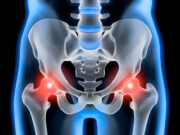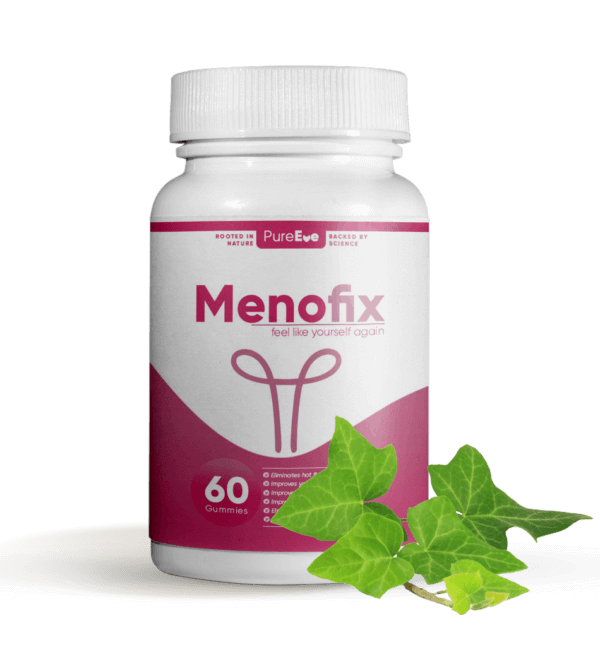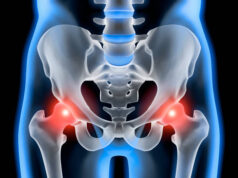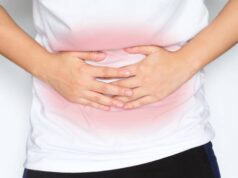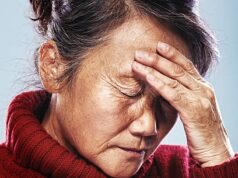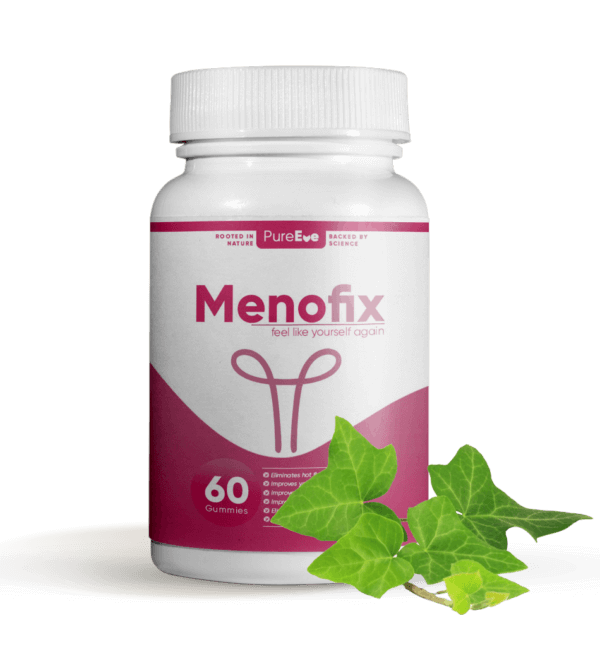Every woman’s body experiences natural transitions but few are as misunderstood as postmenopause. Many believe that once the final menstrual period ends, the journey is complete. In reality, what happens after menopause plays a crucial role in a woman’s long-term health and overall wellbeing.
Postmenopause marks a new chapter where reproductive years officially end, and the body adapts to lower estrogen levels. During this phase, many women notice changes such as hormonal imbalances, mood fluctuations, decreased bone density, or shifting heart health all of which deserve attention and understanding.
Key Takeaways
What exactly happens in your body during postmenopause
The common (and often ignored) symptoms of hormonal imbalance
How to treat and manage those changes effectively
The truth about postmenopausal bleeding, sex drive, and health risks
And most importantly — how to stay strong, confident, and healthy through it all.
If you’ve ever wondered, “What’s really happening to me now that my periods are over?” This post is for you.
Postmenopause
Postmenopause refers to the stage that begins 12 months after your last menstrual period. At this point, the ovaries have significantly reduced estrogen and progesterone production, and menstrual cycles have completely stopped.
This stage can last for the rest of your life. It’s not a disease or disorder, but a natural biological milestone signaling that fertility has ended. While menopause is the transition, postmenopause is the steady state that follows.
What Are the Symptoms of Postmenopause Hormonal Imbalance?
Even though menstruation stops, the body continues to react to lower hormone levels. Some of the most common postmenopausal symptoms include:
- Vaginal dryness or discomfort during sex
- Mood swings or irritability
- Sleep disturbances
- Weight gain, especially around the abdomen
- Thinning hair and dry skin
- Joint pain or muscle stiffness
- Memory issues or brain fog
These symptoms occur because estrogen, which once supported many body functions is now greatly reduced, leading to noticeable physical and emotional changes.
Causes of Postmenopause
The primary cause of postmenopause is the natural decrease in reproductive hormones, mainly estrogen and progesterone.
However, several biological and lifestyle factors influence how early and how severe a woman experiences postmenopausal symptoms:
1. Natural Aging Process
As women age, the ovaries gradually produce fewer eggs, and the levels of estrogen and progesterone, the hormones that regulate menstruation and fertility begin to drop.
This decline doesn’t happen suddenly; it begins years before menopause (during perimenopause) and continues afterward.
By the time you reach postmenopause, the ovaries have almost completely stopped hormone production, leading to changes such as hot flashes, vaginal dryness, and bone loss.
2. Genetic Factors
Your genetic makeup plays a significant role in determining when menopause and therefore postmenopause begins.
If your mother or sisters entered menopause early (say before age 45), you may also experience it earlier than average. This early reduction in reproductive hormones can lead to an earlier onset of postmenopausal symptoms.
Some genes directly influence ovarian function and egg reserve, which explains why timing varies between women.
3. Lifestyle Factors
Your everyday habits can speed up hormonal decline or make postmenopausal symptoms more intense.
Common lifestyle contributors include:
- Smoking: Nicotine reduces estrogen levels and damages ovarian cells, leading to early menopause.
- Poor diet: Lack of nutrients like calcium, vitamin D, and omega-3s weakens bones and worsens fatigue.
- Chronic stress: Long-term stress elevates cortisol, which can disrupt hormone balance.
- Alcohol and caffeine: Excessive intake can worsen hot flashes and disturb sleep.
- Lack of exercise: A sedentary lifestyle increases weight gain and bone loss.
4. Medical Treatments (Chemotherapy or Radiation)
Certain medical treatments, especially chemotherapy or pelvic radiation, can damage ovarian tissue and drastically reduce hormone production.
This condition is known as treatment-induced menopause, and it can happen at any age depending on the type and duration of therapy. After treatment, if the ovaries do not recover normal function, the woman enters permanent postmenopause.
5. Surgical Removal of Ovaries (Oophorectomy)
When both ovaries are surgically removed for example, to treat ovarian cysts, endometriosis, or cancer the body instantly loses its primary source of estrogen and progesterone.
This triggers what’s called surgical menopause, and the woman moves immediately into postmenopause regardless of age.
Symptoms may appear suddenly and be more severe than in natural menopause since the hormonal decline is immediate.
6. Autoimmune Conditions
Some autoimmune disorders, such as thyroid disease, rheumatoid arthritis, or Addison’s disease, can mistakenly attack ovarian tissues, disrupting hormone production.
This can lead to premature ovarian insufficiency (POI) a condition where ovaries stop working before age 40. Once ovarian function declines completely, the woman enters postmenopause earlier than normal.
7. Health Conditions
Long-term use of certain medications (like steroids or antidepressants) or chronic illnesses (such as diabetes or kidney disease) can affect hormone metabolism and ovarian performance.
These conditions may not directly cause menopause, but they can interfere with estrogen balance, making symptoms like hot flashes or mood swings worse.
Difference Between Postmenopause and Menopause
Menopause
- The 12-month period marking the end of menstruation
- Hormone level Fluctuating estrogen and progesterone
- Symptoms Hot flashes, irregular periods, mood swings
- Fertility Declining but possible
- Duration Transitional phase
Postmenopause
- The stage after 12 months without a period
- Permanently low estrogen
- Vaginal dryness, bone loss, urinary issues
- No fertility
- Lifelong stage
How Is Postmenopause Diagnosed?
Doctors usually diagnose postmenopause based on your age, menstrual history, and symptoms.
Common diagnostic steps include:
1. Review of menstrual cycle history confirming no periods for at least 12 months.
2. Blood tests to measure:
- Follicle-stimulating hormone (FSH): High levels indicate low estrogen.
- Estradiol (E2): This will be lower in postmenopausal women.
- Thyroid tests: To rule out thyroid-related causes of irregular cycles.
In some cases, your doctor might also check bone density or cholesterol levels, as hormonal decline can affect bone and heart health.
How to Treat Postmenopausal Symptoms
Treatment focuses on managing symptoms and supporting long-term health. Options include:
1. Hormone Replacement Therapy (HRT)
HRT can relieve severe symptoms like hot flashes, mood swings, and vaginal dryness by replacing lost estrogen. However, it’s not suitable for everyone and must be prescribed under medical supervision.
2. Non-Hormonal Medications
Certain antidepressants, vaginal lubricants, or selective estrogen receptor modulators (SERMs) can ease symptoms without using hormones.
3. Lifestyle Adjustments
- Eat a balanced diet rich in calcium, vitamin D, and omega-3 fats
- Exercise regularly weight-bearing exercises strengthen bones
- Avoid smoking and limit alcohol
- Manage stress through yoga or meditation
4. Natural Remedies and Supplements
Supplements like black cohosh, soy isoflavones, vitamin E, and Menofix (if recommended by your doctor) may help restore hormonal balance and relieve discomfort.
What Are the Health Complications of Postmenopause?
The postmenopausal stage increases the risk of certain health problems due to hormonal decrease:
1. Osteoporosis (Bone Weakness and Fragility)
After menopause, the loss of estrogen accelerates bone thinning, causing bones to become fragile and more likely to break a condition called osteoporosis.
The body constantly rebuilds bone tissue, but estrogen helps balance the rate at which bone is broken down and rebuilt. Once estrogen drops, bone loss happens faster than bone replacement. This increases the risk of fractures, especially in the spine, hips, and wrists.
Prevention and Management:
- Eat calcium-rich foods like milk, yogurt, fish, and green vegetables.
- Get adequate vitamin D from sunlight or supplements.
- Do regular weight-bearing exercises (like brisk walking, jogging, or light strength training).
- Get a bone density test (DEXA scan) to monitor bone health.
2. Heart Disease
Estrogen protects the heart by maintaining healthy cholesterol levels and supporting blood vessel flexibility.
When estrogen levels fall after menopause, bad cholesterol (LDL) tends to increase while good cholesterol (HDL) decreases.
This imbalance can lead to plaque buildup in arteries, high blood pressure, and eventually heart disease.
Women in postmenopause are therefore at a higher risk of developing coronary artery disease, heart attack, or stroke.
Prevention and Management:
- Follow a heart-healthy diet that includes fruits, vegetables, whole grains, and omega-3 fats.
- Exercise at least 30 minutes daily to strengthen your heart.
- Avoid smoking and limit alcohol.
- Schedule regular blood pressure and cholesterol checks.
3. Urinary and Bladder Problems
Decrease estrogen levels can weaken the tissues that support the bladder and urethra, leading to urinary incontinence (leakage when coughing or sneezing) or frequent urinary tract infections (UTIs).
Some women also experience a condition known as urinary urgency, where the need to urinate comes suddenly and strongly.
Prevention and Management:
- Practice pelvic floor exercises (Kegels) to strengthen bladder control.
- Stay hydrated but limit caffeine and alcohol.
- Maintain proper hygiene to prevent infections.
- See a doctor if you notice burning sensations or frequent urination.
4. Vaginal Dryness and Discomfort During Sex
Estrogen keeps the vaginal walls thick, moist, and elastic. When estrogen drops, the vaginal tissues become thin, dry, and less flexible, leading to vaginal atrophy.
This can cause itching, burning, and pain during sexual intercourse, which may affect intimacy and confidence.
Prevention and Management:
- Use water-based lubricants or vaginal moisturizers.
- Discuss with your doctor about topical estrogen creams or low-dose vaginal tablets.
- Engaging in sexual activity if comfortable, regular sexual activity improves blood flow to the vaginal area.
5. Weight Gain and Metabolic Changes
Many women notice weight gain, particularly around the abdomen, during postmenopause. This happens because estrogen influences how the body stores fat and uses energy. As its level drops, metabolism slows, and fat tends to accumulate more easily.
Increased abdominal fat is not just a cosmetic concern, it also raises the risk of type 2 diabetes, high cholesterol, and heart disease.
Prevention and Management:
- Eat balanced meals with lean proteins, fiber, and healthy fats.
- Keep active through cardio and strength exercises.
- Avoid excessive sugar and processed foods.
- Get enough sleep, as poor rest can affect metabolism.
6. Mood Changes and Mental Health Issues
Hormonal shifts can also impact the brain. Many postmenopausal women report mood swings, anxiety, irritability, or mild depression. In some cases, memory lapses and difficulty concentrating can occur due to lower estrogen’s effect on neurotransmitters.
Prevention and Management:
- Socially connected and share your feelings with loved ones.
- Practice stress-relief techniques like meditation or yoga.
- Maintain a regular sleep routine.
Consult a doctor or therapist if symptoms persist treatment options like counseling or antidepressants can help.
7. Skin, Hair, and Nail Changes
The loss of estrogen also affects collagen production, which is vital for maintaining skin elasticity and hydration. As a result, postmenopausal women may notice dry skin, wrinkles, thinning hair, or brittle nails.
These changes are natural but can be minimized with proper care.
Prevention and Management:
- Use moisturizers daily and be hydrated.
- Eat foods rich in vitamin C, omega-3 fats, and antioxidants.
- Avoid harsh hair products and heat styling.
- Protect your skin from the sun with SPF.
8. Vaginal and Pelvic Organ Prolapse
With weakened pelvic muscles and reduced estrogen, the uterus, bladder, or rectum can sometimes drop from their normal position into the vaginal canal (a condition known as pelvic organ prolapse).
It may cause discomfort, a feeling of heaviness, or urinary issues.
Prevention and Management:
- Strengthen pelvic muscles through Kegel exercises.
- Avoid lifting heavy weights.
- Maintain a healthy body weight.
- Seek medical care early if you feel pelvic pressure or bulging.
9. Increased Risk of Certain Cancers
Although rare, prolonged hormonal imbalance may slightly increase the risk of some cancers such as endometrial (uterine) and breast cancer. Regular medical checkups help detect any early signs and ensure quick treatment if necessary.
Prevention and Management:
- Get regular pelvic exams, Pap smears, and mammograms.
- Avoid smoking and excessive alcohol intake.
- Eat antioxidant-rich foods to support your immune system.
How Long Does Postmenopause Last in Women?
Postmenopause is lifelong; it doesn’t end. However, most symptoms like hot flashes and mood changes tend to ease within 2–5 years after menopause.
The focus then shifts from symptom management to maintaining heart, bone, and mental health through proper lifestyle and nutrition.
What Happens to Your Body When You Are Postmenopausal?
Your body goes through several physiological changes:
- Lower estrogen slows collagen production, causing skin dryness.
- Bone mass decreases, increasing fracture risk.
- Fat distribution changes, leading to more belly fat.
- Cholesterol levels may rise, increasing heart risks.
- Muscle tone decreases, affecting strength and metabolism.
Understanding these changes helps you take proactive steps to stay strong and energetic.
How to Stay Healthy During Postmenopause
- Nutrient-rich foods: Focus on fruits, vegetables, whole grains, and lean proteins.
- Be active: Aim for 30 minutes of exercise daily walking, swimming, or yoga.
- Prioritize bone health: Take calcium and vitamin D supplements if needed.
- Drink enough water: Hormonal changes can cause dryness.
- Monitor your health: Regular screenings for heart disease, breast health, and bone density.
- Maintain a positive mindset: Join support groups or talk to a counselor if needed.
Remember: Postmenopause is not an end, it’s a new beginning for self-care and empowerment.
What Are the Causes of Postmenopausal Bleeding?
Any bleeding after menopause is abnormal and should be evaluated by a doctor. Common causes include:
- Vaginal or uterine atrophy (thinning tissues)
- Endometrial hyperplasia (thickening of uterine lining)
- Fibroids or polyps
- Hormone therapy side effects
- Uterine or cervical cancer (rare but serious)
Prompt medical evaluation is essential to rule out serious causes.
Expert Advice for Nigerian Women in Postmenopause
Postmenopause is a natural and inevitable part of aging, not a decline in womanhood. While hormonal changes may bring challenges, understanding your body helps you take control of your health.
Tips:
Get regular checkups for bone, heart, and reproductive health.
Don’t ignore symptoms like bleeding or pain.
Eat well, move daily, and protect your mental wellbeing.
Consider medical or natural therapies under professional guidance.
Embrace postmenopause as a time to focus on your wellness, growth, and vitality.
Common Questions About Postmenopause
1. How Does Postmenopause Make You Feel?
It varies. Some women feel relieved that periods are over, while others experience symptoms like fatigue, dryness, or mood swings. With time and proper management, most regain their energy and confidence.
2. Can Postmenopause Be Reversed?
No, postmenopause is permanent. Once your ovaries stop producing eggs and estrogen remains low, menstruation will not return. However, symptoms can be managed effectively.
3. What Supplements Are Good for Postmenopause?
Supplements that support hormone balance and bone health include:
Calcium and Vitamin D
Omega-3 fatty acids
Magnesium
Vitamin E and B-complex
Black cohosh or soy isoflavones
Menofix a nutritional supplement formulated for women’s hormonal support.

4. Do People in Postmenopause Lose Interest in Sex?
A drop in estrogen can reduce libido or cause discomfort during intercourse. However, this can be managed through vaginal moisturizers, lubricants, HRT, or natural supplements. Emotional connection and open communication with your partner also help.
5. Can Postmenopause Be Prevented?
No, it’s a natural life stage. But you can delay its onset or reduce discomfort through healthy living, a balanced diet, stress control, and avoiding smoking or alcohol.


